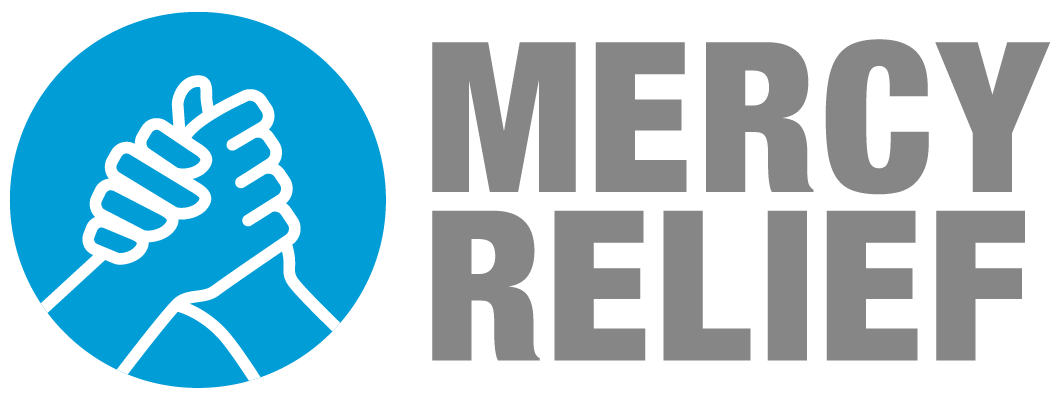On 8 October a devastating earthquake of 7.6 magnitude struck Pakistan-administered Kashmir, instantly killing 18,000 and injuring more than 41,000 people. Those who survived lost most of their possessions and had little to protect them from the looming winter.
At the wake of the disaster, MR immediately activated its existing network in Pakistan, the Pakistan Islamic Medical Association (PIMA), for the latest ground information. Following their reports that the Muzaffarabad region was the worst affected area, where 90% of its buildings had collapsed, MR collaborated with the Singapore General Hospital to send a 6-man preliminary medical team there. The objective was to attend to the immediate needs of the victims and to assess the other needs on the ground for the missions to follow. The team set up base at the UN base camp in Muzaffarabad and was deployed to Balakot and Abbotobad. Operating out of the PIMA field hospital, they tended to the sick and injured, seeing on average 450 patients a day. 65% of the patients were treated for orthopaedic injuries and paediatric cases, while others had acute water diarrhoea and respiratory tract infection. The first mission also teamed up with the Singapore Civil Defence Force (SCDF) in a joint-rescue operation.
In tandem, the first team paved access for Team Singapore’s deployment. Based on the information gathered by the preliminary team, MR HQ made the decision to deploy further relief missions under the banner of Team Singapore – a joint-effort by several organizations comprising Singapore International Foundation (SIF), Parkway Medical Group, Singapore Red Cross Society (SRCS), Singhealth and the National Healthcare Group. The relief operations were co-funded by SRCS and supported by the Singapore Pakistani Association (SPA) and the Ba’alwie Mosque in Singapore. Team Singapore also worked alongside the United Nations Children’s Emergency Fund (UNICEF) to implement a vaccination programme at the PIMA field hospital.
In total, 5 relief mission teams of 48 volunteers were deployed, providing specialised medical assistance in four main areas: obstetrics and gynaecology, paediatrics, orthopaedics and primary healthcare. The teams extended medical aid to more than 15,000 patients at the field hospital managed by local partners, PIMA and the Ministry of Health’s regional referral centre.
Through PIMA, MR procured US$15,000 worth of emergency supplies from Islamabad, including tents, blankets, food packs and medicines. Another shipment of blankets, medicine, and household items worth S$20,000, funded by the Singapore Pakistan Association (SPA) was delivered. In addition, MR distributed 1,000 tents, 1,000 blankets, food and medicines to the survivors living in makeshift shelters in Ambour, Rala, Basnara and Manak Bayyan camps under the coordination of the Pakistani Armed Forces, as well as the Kaghan and Neelum Valley IDP camps run by The Citizens Foundation (TCF). Medical supplies were also provided to the PIMA field hospital and Abbas Hospital to boost their pharmacies.
At the close of the medical relief mission, the logistics team conducted further needs assessment in the more remote villages near the epicentre, while distributing tents and other relief supplies in those areas in collaboration with the Pakistani Armed Forces. With monetary contributions from SRCS, MR was able to procure another 200 tents for more than 1,000 people in preparation for the pending winter.
Moving on to the post-disaster rehabilitation phase of relief operations, MR decided to focus on the provision of psychological aid to the most vulnerable segment of the demographics – the children. With recommendations and support from donors, MR provided 10,000 play packs complete with new sets of stationery and educational materials for the children, to help create a sense of normalcy for them amidst the adversities they faced. This was funded by donations raised from the ‘Playpacks for Pakistan’ roadshow jointly organised by MR and MediaCorp Radio. The money was raised from the audience and pledges made by listeners who responded to ad-libs aired on the various radio stations. The play packs were distributed to six schools across the mountainous Kashimiri region, identified by local partner TCF.
About Mercy Relief
Mercy Relief is a Singaporean humanitarian organisation which engages in both disaster relief and sustainable development programmes. It was established in 2003 as an independent non-governmental humanitarian charity responding to the human tragedies in Asia. Mercy Relief’s aid programme focuses on providing timely and effective assistance to disaster-stricken communities and has maintained the delivery of emergency aid within 72 hours from the point of appeal for assistance.
In the past 12 years, Mercy Relief has disbursed over S$32 million in aid across 40 disaster relief and 53 sustainable development initiatives. Mercy Relief has impacted an aggregate of 2 million lives in 24 countries and areas, namely Afghanistan, Bangladesh, Cambodia, China, DPR Korea, India, Indonesia, Iran, Iraq, Japan, Laos, Lebanon, Malaysia, the Maldives, Myanmar, Nepal, Pakistan, Palestine, the Philippines, Sri Lanka, Taiwan, Thailand, Vietnam and Yemen.
For more information, you may call us at 6514 6322 or email corporateaffairs@mercyrelief.org

